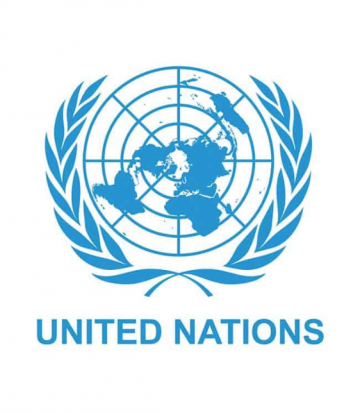21 July 2020
Apia/Suva – The United Nations and New Zealand have agreed to a
new partnership that promises to improve the health, lives and livelihoods of
thousands of people across the Pacific, including in Samoa.
New Zealand has agreed to commit initial funding of NZ$24.7 million ($42.9
million SAT) for the NZ UN Pacific Partnership (UNPP), which will support UN-
led activities in Samoa and 13 other Pacific Island countries. Over the next two
and a half years, the money will be used to lift basic services, improve
governance and enhance gender equality in line with the UN’s sustainable
development goals.
The new partnership will help Pacific governments to deliver more child
vaccines, improve nutrition, provide quality early childhood education, make
sexual and reproductive health services available to more women, and ensure
that more births are registered. New Zealand’s contribution will also focus on
improving workplace safety and income for women market vendors. It will also
support the strengthening of anti-corruption legislation and policies, and help
provide more reliable data that will inform decision-making.
As well as Samoa, the new agreement will see assistance going to the Cook
Islands, the Federated States of Micronesia, Fiji, Kiribati, Marshall Islands,
Nauru, Niue, Palau, the Solomon Islands, Tokelau, Tonga, Tuvalu, and Vanuatu.
“New Zealand sees value in the role played by the UN in the region and wants
to support it to deliver inclusive development for the Pacific,” said H.E. Mr.
Jonathan Curr, New Zealand High Commissioner to Fiji, at the official launch of
the partnership today. “Nearly half of the partnership’s activities this year will
also directly support the Pacific’s COVID-19 response.”
“New Zealand and UN agencies want to ensure every dollar spent through the
UNPP is going towards a better life for a woman, child or family in the Pacific.”
UNDP, UNFPA, UNICEF and UN Women – four of the UN’s 26 agencies in the
Pacific – will work together to deliver the co-owned programme.
“This is a new approach to New Zealand’s long-standing partnership with the
UN to support the development ambitions of countries in the Pacific,” said
Sanaka Samarasinha, UN Resident Coordinator for ten countries in the Pacific.
“The initiative engages the combined assets of the UN system in a coordinated
and coherent manner to make a difference in the lives of people who are most
disadvantaged and vulnerable. Working efficiently and effectively together to
ensure countries achieve the Sustainable Development Goals by 2030 is at the
heart of the UN’s reform agenda. It is even more urgent now as the COVID-19
pandemic threatens the development gains already made in the region.”
“Pacific nations in general have enjoyed success in protecting their populations
from the worst of COVID-19,” said Simona Marinescu, UN Resident
Coordinator for four countries in the Pacific. “But the pandemic and the
measles crisis it before show just how important it is for communities to be
resilient to shocks. This resilience is not achieved by reacting when
emergencies happen – but through long-term and consistent development
approaches, which will be supported by the NZ-UN Pacific Partnership.”
Notes to editors
The UN has had a presence in Samoa since the country achieved independence in
1962. Today it works to help national governments achieve development and
humanitarian targets, including the Sustainable Development Goals.
There are currently 11 United Nations organizations based in Apia that serve the
Cook Islands, Niue, Samoa and Tokelau. These include:
The Food and Agriculture
Organization
The International Labour
Organization
The UN Capital Development
Fund
UNICEF
The UN Population Fund
UN Women
The World Health Organization
The World Meteorological
Organization
The UN Development Programme
The UN Environment Programme
UNESCO
The UN Country Team is coordinated by the Office of the Resident Coordinator.
For further information please contact:
UN Samoa
Damian Kean, Communications Consultant, UN Resident Coordinator’s Office,
Samoa
damian.kean@one.un.org – +685 766 4375

